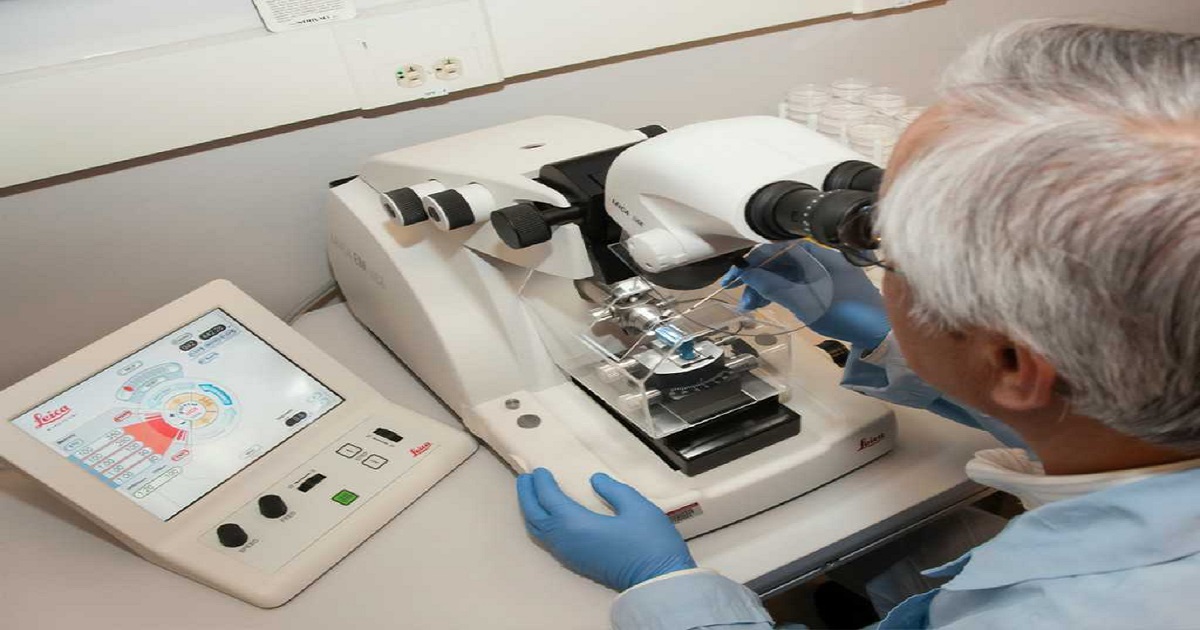
Health Technology, Digital Healthcare
Article | August 16, 2023
Introduction
Over the past couple of years, there has been a substantial rise in the burden of chronic conditions and treatment costs, along with the growing elderly population, which is transforming the healthcare sector at a rapid pace. As per a study, healthcare spending across the globe is anticipated to reach an unprecedented value to total US$ 18.3 trillion by 2030. In response to these trends, volume-based payment models are being replaced by outcome- or value-based models.
Predictive analytics helps health organizations to get in line with these new models and improve patient care and outcomes. From predicting critical conditions such as heart failure and septic shock to preventing readmissions, the recent advancements in big data analytics are boosting the adoption of new predictive analytics solutions that aid clinicians improve outcomes and cut costs.
Predictive analytics in healthcare is most helpful with clinical care, administrative tasks, and managing operations. More importantly, the technology is already making a difference in a wide range of healthcare settings, from small private doctor's offices and large academic hospitals to healthcare insurance companies.
How is Growing Healthcare Data Favoring the Penetration of Predictive Analytics?
The growing inclination toward digitalization in the healthcare industry has led to the creation of huge new data sets. These include radiology images, electronic medical record (EMR) systems, lab results, and health claims data. The amount of data is expected to reach new avenues with increasing genomics and cytogenesis research data in the near future.
New data is being generated and collected by the novel medical devices at the edge, such as monitors and patient wearables. In addition, outside the healthcare setting, patients are generating quasi-health data through the use of health monitoring applications, fitness trackers, and personal wearable devices.
By using data from these sources, health care providers can find new ways to use predictive modeling for health risks, predictive analytics for medical diagnosis, and prescriptive analytics for personalized medicine.
Predictive analytics has become a crucial component of any strategy for health analytics. Today, it's an essential tool for measuring, combining, and making sense of biometric, psychosocial, and behavioral data that wasn't available or was very hard to get a hold of until recently. Here are some of the applications of predictive analytics for healthcare
Identifying Patients at Risk
Clinical Predictions
Disease Progression and Comorbidities
Predicting Length of Stay
Speeding Treatment of Critical Conditions
Reducing Readmissions
The Future Story
With the growing prominence of innovative technologies across the healthcare industry, a number of health IT providers are focusing on developing their own analytics software and engines to assist healthcare spaces deliver optimal patient care.
For instance, in 2020, Eversana, a U.S.-based provider of innovative solutions to the life sciences industry, announced the introduction of its ACTICS predictive analytics solution, which enables clinical spaces to combine multiple data sources into a single comprehensive system.
Also, some U.S. companies are partnering with healthcare institutions to develop proprietary algorithms designed to enhance organizational performance, improve clinical care, and increase operational efficiency. Such developments are projected to increase the popularity of predictive analytics solutions in the healthcare sector in the coming years.
Read More

Health Technology, Digital Healthcare
Article | September 8, 2023
“Health care is different, the data here is emotional! If you tell me you were buying a fishing rod online and were emotional about it, I’d say you are lying. But I do frequently see people helpless and confused when it comes to receiving health care, managing its costs, making sense of its data.”
- Senior Product Leader inOptum Global Solutions Pvt. Ltd.
Yes, health care is different, and so is product management in it. This piece highlights the top 4 product management trends that are specific to health care and serve beyond being just a list of technologies making their way into health care.
Health care consumerism
Lance broke his ankle in a bicycle accident and is now in hospital waiting for surgery. Which of these words would describe him more aptly— a ‘patient’ or a ‘health care consumer’? The fact that Lance holds a high-deductible health plan, manages an interactive relationship with his primary doctor, keenly monitors his fitness through his smartwatch, and learns about healthier diet plans and recipes online — I can say he isn’t just receiving health care, but making active choices on how to pay for and manage his health. This choice and responsibility that people demand, is ‘health care consumerism’. This trend has been growing since 2015 when value-based care started picking up in the US.
What does this imply for products/PMs?
These are challenging and exciting times to be a product manager (PM) in health tech. This is because people are now demanding an experience equivalent to what they’re used to from other products in their lives, such as e-commerce, streaming platforms, and digital payments, to name a few. Any consumer-facing product (a mobile app, a web-based patient portal, a tech-enabled service) needs to meet high expectations. Flexible employer-sponsored health plans options, health reimbursement arrangements, price transparency products for drugs and medical expenses, remote health care services, and government's push to strengthen data and privacy rights — all point to opportunities for building innovative products with ‘health care consumerism’ as a key product philosophy.
Wellness
COVID-19 has tested health care systems to their limits. In most countries, these systems failed disastrously in providing adequate, timely medical assistance to many infected people. Prevention is of course better than cure, but people were now forced to learn it the hard way when cure became both inaccessible and uncertain. With lockdowns and social isolation, prevention, fitness, diet, and mental wellbeing all took center stage.
Wellness means taking a ‘whole-person approach’ to health care — one where people recognize the need to improve and sustain health, not only when they are unwell, but also when they’re making health care decisions that concern their long-term physical and mental health. A McKinsey study notes that consumers look at wellness from 6 dimensions beyond sick-care— health, fitness, nutrition, appearance, sleep, and mindfulness. Most countries in the study show that wellness has gained priority by at least 35% in the last 2–3 years. And wellness services like nutritionists, care managers, fitness training, psychotherapy consultants contribute 30% of the overall wellness spend.
So, what do health-tech PMs need to remember about wellness?
The first principle is, “Move to care out of the hospital, and into people’s homes”. A patient discharged after knee surgery has high chance of getting readmitted if he/she has high risk of falling in his/her house, or is unable to afford post-discharge at-home care with a physiotherapist. This leads us PMs to build products that recognize every person’s social determinants of health and create support systems that consider care at the hospital and care at home as a continuum.
The second principle is, “Don’t be limited by a narrow view of ‘what business we are in’, as wellness is broad, and as a health tech company, we are in health-care, not sick-care”. Wellness products and services include — fitness and nutrition apps, medical devices, telemedicine, sleep trackers, wellness-oriented apparel, beauty products, and meditation-oriented offerings, to name just a few. Recent regulations in many countries require health care providers to treat behavioural health services at par with treating for physical conditions, and this is just a start.
Equitable AI
Last month, WHO released a report titled “Ethics and Governance of Artificial Intelligence for Health”. The report cautions researchers and health tech companies to never design AI algorithms with a single population in mind. One example I read was, “AI systems that are primarily trained on data collected from patients in high-income settings will not perform as effectively for individuals in low or middle-income communities.” During COVID-19, we came across countless studies that talked about the disproportionate impact on minorities in terms of infections, hospitalizations, and mortality. A student at MIT discovered that a popular out-of-the-box AI algorithm that projects patient mortality for those admitted in hospitals, makes significantly different predictions based on race — and this may have adversely moved hospital resources away from some patients who had higher risks of mortality.
How should I think about health equity as an AI health-tech PM?
Health equity means that everyone should have a fair chance at being healthy. As a PM, it’s my job to make sure that every AI-assisted feature in my product is crafted to be re-iterative and inclusive, to serve any community or subpopulation, and is validated across many geographies. To prevent any inequitable AI from getting shipped, it is important to ensure that the underlying AI model is transparent and intelligible. This means knowing what data goes into it, how it learns, which features does it weigh over others, and how does the model handles unique features that characterize minorities.
Integrated and interoperable
In every article that I read on topics such as digital platforms, SaaS, or connectivity with EMRs, I always find the words: ‘integrated’ and ‘interoperable’ therein. Most large and conventional health tech companies started by offering point-solutions that were often inextensible, monolithic, and worked with isolated on-prem servers and databases. To give a consistent user experience, leverage economies of scope, and scale products to meet other needs of their customers, started an exodus from fragmented point-solutions to interoperable, integrated solutions. The popularization of service-oriented architectures (SOAs) and cloud vendors like AWS, Azure, and GCP has also helped.
The what and how of integrated-interoperable solutions for PMs:
Integrated solutions (IS), as I see them, are of two kinds — one, in which as a health tech company, we help our customers (health systems, insurance companies, direct to consumers) accomplish not just one, but most/all tasks in a business process. For example, a B2B IS in value-based care contract management would mean that we help our customers and health systems by giving an end-to-end solution that helps them enter into, negotiate, plan for, manage, get payments for their value-based contracts with health plans.
In the second type of IS, we offer products that can be easily customized to different types of customers. For example, a health management app that people can subscribe to for different programs such as obesity, diabetes, hypertension, cholesterol management, as needed. The app works with different datasets for these programs and uses different analyses and clinical repositories in its backend, but still delivers a consistent user experience across programs to a user who enrolled in multiple programs, say diabetes and weight management.
‘Interoperable’ simply means that one product should be able to talk to other products both in and out of the company. For example, if product-A can alert a doctor about any drug-drug interactions or allergies a patient might have, while she is writing prescriptions for the patient in product-B (an EMR), then product-A does talk to product-B, and hence, is interoperable. This trend is picking up further with the growth of IoT devices, and industry-wide participation in adopting common standards for data exchange.
Conclusion
Though the article derives much of its context from US health care, I have tried to keep a global lens while choosing these topics. For developing economies like India, digitization is the number one trend as much of the health system is still moving from manual records to digitally store patient and medical data in EMRs. The good news is that India is booming with health-tech innovation and that is where consumerism, wellness, and equitable AI make sense. Once companies develop enough point-solutions for different health system needs and use-cases, Indian health tech will see a move towards creating integrated, interoperable (IGIO) systems as well.
There are some other trends such as — use of non-AI emerging tech such as Blockchain in health information management, cloud infrastructure for health tech innovation, big data and analytics to improve operational efficiency in areas such as claims management and compliance reporting, Agile product management for co-developing with and continuously delivering to clients etc. — but I see them either as too nascent, or too old to feature in this list.
Finally, as a health tech product manager, you can use the following questions to assess your products against the above trends — (Consumerism) do the products that I manage, empower consumers with choice, information, and actionability? (Wellness) Does my product emphasize keeping them out-of-hospitals and healthy in the first place? (Equitable AI) Am I sure that my product doesn’t discriminate against individuals belonging to underserved populations? (IGIO) And finally, is my product scalable, integrated and interoperable to expand to a platform, in the true sense?
Read More

Health Technology, Digital Healthcare
Article | September 7, 2023
Artificial Intelligence is here to improve our lives, by not just making things more efficient, but also increasing our lifespan. Companies across industries are experiencing the advantages that come with AI innovation, especially the healthcare space. Throughout human history, we’ve been able to understand the parameters that determine health better, and we’ve developed accompanying technology. With vaccines in the late 1700s, anesthesia and medical imaging in the 1800s, to organ transplant and immunology in the 1900s, healthcare innovation has been on an upward slope.
Read More

Health Technology
Article | February 19, 2022
Dialysis providers face many of the same financial and operational pressures that affect other provider organizations, including flat or reduced reimbursements, chronic staffing shortages, and increasingly complex insurance requirements. Dialysis centers, nephrologists, and renal pharmacies also grapple with the impact of a growing shift in dialysis care to the home setting.
End-to-End Automation Can Reduce Denials, Improve Cash Flow
The good news is that despite these challenges, dialysis providers can sustain strong cash flow, reduce costs, and mitigate denials by applying advanced technology to the revenue cycle.
Here are six ways technology can help strengthen the dialysis center revenue cycle in the today’s difficult operating environment:
Identify undisclosed insurance coverage
Because patients often present as self-pay even though coverage exists, determining their true insurance status can be challenging. Yet failure to identify existing insurance can result in significant write-offs.
That’s why renal providers need technology solutions that can uncover patient coverage information before care is provided. Change Healthcare’s Coverage InsightTMsolution provides an expansive network and search-and-matching capabilities necessary to identify and confirm patient coverages at the outset of care.
The solution uses machine learning algorithms—coupled with access to vast stores of available third-party-data—to develop robust patient profiles, which can then be linked to potential funding sources. Notably, it identifies a variety of indicators, including high probability of disability, income levels and financial status, insurance sources, and other actionable information to help you verify coverage and recover revenue.
We can help identify undisclosed coverage for end-stage renal disease (ESRD) patients through Medicare/Medicaid, Disability/SSI, third-party liability, commercial insurance, state and county programs, social programs, and charity.
Expedite seamless prior authorizations
Streamlining the prior authorization process is essential to help ensure optimal reimbursement for renal care rendered, particularly with commercial insurance and Medicare. But traditional prior authorization processes are frequently time-consuming and labor-intensive and can delay necessary care.
Our Clearance Authorization software addresses the chronic problem of prior authorizations with automated functionality that can determine if prior authorization is required and on file with the payer. The solution also will automatically check medical necessity requirements at the time of registration and electronically submit requests to integrated payers.
Change Healthcare’s Connected Authorization Services go a step further by deploying pre-authorization experts to handle routine authorizations quickly using intelligent technology while working complex cases by exception to improve authorization efficiency and accuracy.
Speed adjudication with electronic attachments
As claims management processes have grown more numerous and complex, providers have struggled to ensure that the correct information is provided to the payer at the appropriate time. The result can be delayed, denied, or rejected claims.
Assurance Attach AssistTMcontributes to faster reimbursement and reductions in denials, organizational expense, and administrative burden by automating the attachments process to meet payers’ increased demands for additional documentation. Attachments are automatically delivered and matched to the appropriate claim, and once the claim is released, claim and attachment status can be easily tracked.
Expedite claims workflow for recurring services
Creating claims for ongoing ESRD care requires repeatedly documenting the same details on each claim. Revenue Performance Advisor, an end-to-end medical billing platform, provides automation that allows dialysis staff to save time by quickly replicating unchanged data from prior visits while updating date-of-service and other information to expedite claims processing.
Revenue Performance Advisor also includes eligibility and benefits verification and automated claims scrubbing that flags incomplete or incorrect claims prior to submission, resulting in a first-pass clean claim rate of 98%.
Accelerate your Medicare claim cash flow
Medicare is one of the largest payers of dialysis services, so ensuring a problem-free and expedited Medicare claims submission process is essential to strong cash flow.
Our Assurance Medicare Direct EntryTMsolution provides a single system for the real-time submission and processing of Medicare claims. It can help expedite reimbursement, reduce AR days, and speed your Medicare primary claim cash flow by at least one full business day.
Assurance Medicare Direct Entry also checks your Medicare claims for eligibility errors using the CMS eligibility transaction system (HETS). Claims needing attention are flagged and posted in Assurance Reimbursement Management for editing. You can quickly correct errors within the system before transmitting the claim directly to Medicare for validation and payment processing.
Optimize patient liability
Making it easy for patients to receive, understand, and pay their portion of the medical bill is key to ensuring a healthy revenue cycle, mitigating the need for collection services, and improving patient goodwill.
With our Patient Billing and Statements solution, Change Healthcare serves as your strategic communications partner, delivering multi-channel, personalized print and digital statements to help expedite patient payment collection.
The solution is designed to provide fast, effective statement and invoice processing, printing, and mailing—cutting your costs and getting you paid sooner. Our advanced statement printing allows you to bypass conventional and time-consuming folding, stuffing, and stamping.
SmartPayTMconsolidates each step of the billing and payment process into one place, enabling you to collect more patient payments, get paid faster, reduce your collection costs, and lower patient write-offs. With multiple payment channels, including online, mobile, telephone and via mail, SmartPay helps expedite patient payments before, during, and after the encounter.
A single, trusted partner
Change Healthcare’s deep knowledge of the renal care landscape and our development of disruptive technologies to overcome traditional revenue cycle barriers can help dialysis centers achieve unprecedented revenue cycle excellence.
And unlike many point solutions that only address a specific revenue cycle issue, Change Healthcare’s technologies are part of a comprehensive approach delivered through a single, trusted vendor. That translates into improved process integration and continuity, as well as simpler overall accountability.
Read More